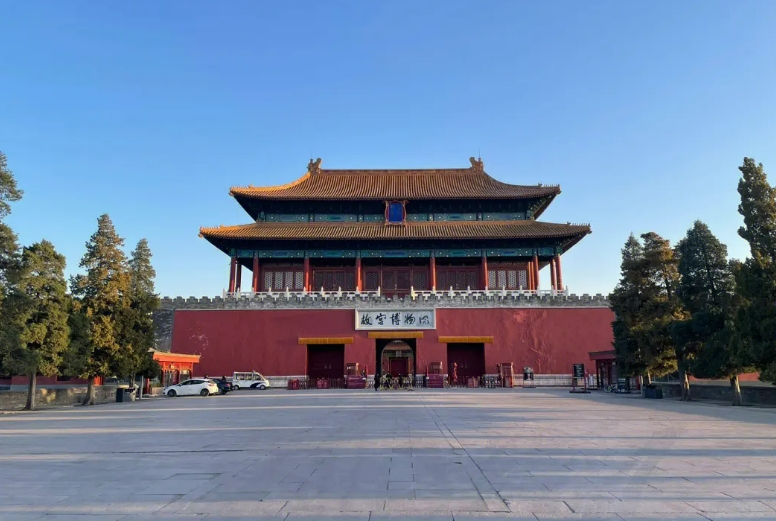
The Forbidden City: A Name That Speaks of Power and Divinity
English speakers use the title "Forbidden City," a direct translation of the Chinese name "Zijin Cheng" (紫禁城). But this seemingly simple name carries layers of meaning, reflecting ancient Chinese cosmology and the emperor's supreme authority.
Ziwei: The Celestial Abode of the Supreme Deity
To understand the name, we must first understand the significance of "Zi" (紫), a contraction of "Ziwei" (紫微). In traditional Chinese astronomy, Ziwei refers to the Pole Star, a star that remains nearly stationary in the night sky, while other stars appear to revolve around it. This fixed nature led to the Pole Star being viewed as the celestial abode of the supreme deity, the celestial emperor who ruled the heavens.
The Emperor as the Son of Heaven
The Emperor of China was considered the "Son of Heaven" (天子), the earthly counterpart to the supreme deity residing in Ziwei. Just as the Pole Star was the center of the celestial realm, the emperor was the center of the earthly realm. His palace, therefore, was built to reflect this cosmic connection.
Jin Cheng: The Forbidden City
The remaining characters, "Jin Cheng" (禁城), literally translate to "Forbidden City." This reflects the exclusivity and inaccessibility of the palace. The emperor, his family, and a select few officials and servants were the only individuals allowed to enter. The lives of the emperor and his court were veiled in secrecy, further adding to the air of mystery and power that surrounded the Forbidden City.
The Forbidden City: A Symbol of Imperial Might
The name "Forbidden City" encapsulates the essence of imperial China. It speaks of a divinely ordained emperor, ruling from a secluded and inaccessible palace, a microcosm of the cosmos itself. Today, the Forbidden City stands as a testament to a bygone era, a physical manifestation of the power and grandeur of China's imperial past.
Q&A:
Q: Why was the Forbidden City forbidden?
A: The Forbidden City was "forbidden" because it was the exclusive residence and center of power for the emperor and his court. Only a select few individuals with special permission were permitted to enter. This seclusion reinforced the emperor's authority and the mystique surrounding his position.
Q: What is the significance of the Pole Star in Chinese cosmology?
A: The Pole Star held immense significance in Chinese cosmology as it was believed to be the celestial abode of the supreme deity, the celestial emperor. Its fixed position in the sky, around which all other stars appeared to revolve, made it a symbol of constancy, power, and divine order.
Q: Is the Forbidden City still forbidden today?
A: No, the Forbidden City is no longer forbidden. Today, it is a UNESCO World Heritage Site and a popular tourist destination known as the Palace Museum. Visitors from all over the world can now explore the magnificent halls and courtyards that were once off-limits to most.